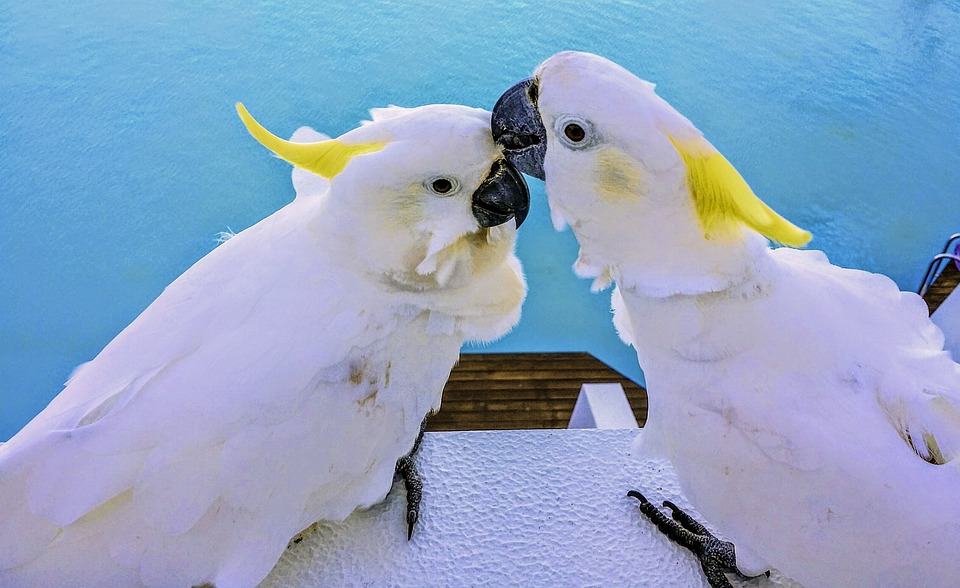Parrots are intelligent and social creatures that require mental and physical stimulation to thrive. Without adequate enrichment, they can easily become bored, leading to a range of behavioral issues. In this article, we will explore how to recognize signs of boredom in your parrot and provide effective enrichment strategies to keep them happy and engaged.
Signs of Boredom in Parrots
1. Excessive Feather Plucking or Self-Mutilation: Boredom and frustration are often expressed through destructive behaviors, such as feather plucking or self-mutilation. Parrots may resort to these actions as a means to relieve stress and boredom.
2. Vocalization and Screaming: Parrots are natural vocalizers, but excessive screaming or vocalization beyond their usual patterns can indicate boredom. When parrots lack mental stimulation, they may resort to loud vocalizations to seek attention or alleviate their boredom.
3. Aggressive Behavior: Bored parrots may exhibit increased aggression towards humans or other animals. This can manifest as biting, lunging, or territorial behavior. Without proper outlets for their energy and intelligence, parrots can become frustrated and display aggressive tendencies.
4. Lethargy and Inactivity: If your parrot seems disinterested, spends extended periods sitting quietly, or lacks motivation to engage in activities, it could be a sign of boredom. Parrots are naturally curious creatures, and a lack of mental stimulation can lead to a decrease in their overall energy levels.
Providing Enrichment for Your Parrot
1. Rotate Toys: Introduce a variety of toys into your parrot’s environment and rotate them regularly to maintain novelty. Puzzle toys, foraging toys, and shreddable toys are excellent options to keep your parrot mentally stimulated and entertained.
2. Positive Reinforcement Training: Engage in positive reinforcement training sessions with your parrot to provide mental and physical stimulation. Teach them simple tricks or behaviors, using rewards like treats or praise to keep them motivated and focused.
3. Create an Enriching Environment: Make sure your parrot’s cage or aviary is filled with interesting objects, perches of different sizes and textures, and natural branches for climbing. Create a stimulating environment by adding bird-safe plants, mirrors, and safe toys.
4. Social Interaction: Parrots are highly social animals and require regular interaction with their human caregivers. Spend quality time with your parrot, offering them opportunities for play, training, and gentle physical contact. Consider getting them a same-species companion if appropriate.
5. Provide Puzzles and Foraging Opportunities: Stimulate your parrot’s foraging instincts by hiding treats or their daily food ration within toys, cardboard boxes, or foraging puzzles. This encourages natural behaviors and keeps them mentally engaged.
FAQs
Q1: How much time should I spend interacting with my parrot each day?
Ideally, you should spend a minimum of one to two hours interacting with your parrot daily. However, the actual time required can vary depending on the species and individual needs of your parrot.
Q2: Can I leave my parrot alone with toys all day?
While providing toys is crucial, parrots still require regular social interaction and mental stimulation from their human caregivers. Leaving them alone with toys all day may not be sufficient to prevent boredom and its associated issues.
Q3: Will providing more toys eliminate boredom completely?
While toys are essential for parrot enrichment, they should be part of a comprehensive approach that includes social interaction, training, and a stimulating environment. A variety of enrichment strategies will help prevent boredom more effectively.
Q4: How often should I change the toys in my parrot’s cage?
It’s recommended to rotate or introduce new toys every one to two weeks. This ensures that your parrot doesn’t get bored with the same toys and maintains their interest in their environment.
By recognizing signs of boredom in your parrot and providing them with appropriate enrichment, you can ensure their mental and emotional well-being. Remember to observe your parrot’s behavior closely and adjust their enrichment strategies accordingly. A happy and engaged parrot will reward you with their vibrant personality and companionship.









